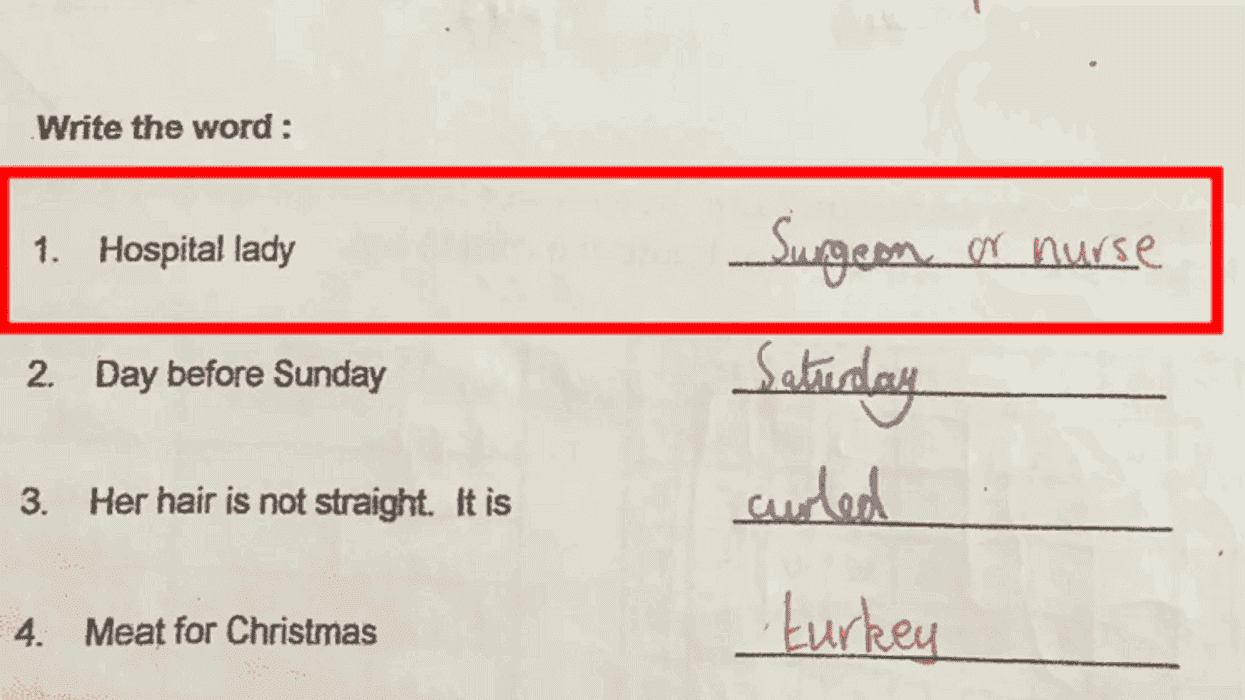Most of us have been in a position where our partner, our child, our friend, our coworker, or someone else in our life needs a pick-me-up. It could be because they’re nervous about a presentation, they just lost their job, they feel depressed, or something else has them spiraling in doubt and anxiety.
You want to give a pep talk, but something like “You got this!” feels hollow. “I love you” might be nice, but not helpful, and “It’ll be okay” feels like blind reassurance that you cannot guarantee. You also don’t want to offer advice since they’re not in the headspace for it, it’s not your place to give it, or it would come off as an “I told you so” lecture. Luckily, experts have weighed in to provide some ideas, contexts, and, yes, advice on how to give pep talks without providing recommendations or making it about your wisdom instead of their problem.
@jordybouletviau Real ❤️🩹
Address their needs
Before offering some kind words, ask the kindest question: “What do you need?”
“A lot of people think they are giving a pep talk, but they are just saying what they would want to hear or what they think the other person wants to hear,” said Stacy Kaiser, a licensed psychotherapist, to the Wall Street Journal in 2015. “They’re not plugging into what the person really needs.”
The person you’re trying to boost likely knows what works best for them. However, if they do want a pep talk, this question can reveal exactly what they’re looking for, whether it’s just nice encouragement, grounded advice, or a speech like a coach in a sports movie. Whatever it is they want, they’ll appreciate you taking the time to ask before offering something they don't actually need.
Lead with empathy, end with their personal agency
Most of the time, saying “tough it out” or “you’ll get through this” isn’t helpful. Such phrases disregard the person’s struggle, feelings, or pain. According to Jacqueline and Milton Mayfield, a husband-and-wife team at Texas A&M International University who have studied pep talks for over three decades, pep talks that lead with empathy (“This has to be tough,” “Your well-being is what I care about most,” “I know how much of a challenge this is,” etc.) with dabs of praise, encouragement, and gratitude can work wonders.
Towards the end of your chat, you can avoid advice altogether by just reminding the person of their agency and their ability in a calm and assertive manner. A 2017 study found that calm, slower, intentional speech got through to people more effectively than loud cheerleading or fiery sermons. In terms of what you say, “everything is going to be okay” falls flat compared to reminding them that they have certain elements in control and that they have the tools and resilience to overcome their adversity.
“The best pep talk is reminding someone what they already know about themselves, based on your knowledge of them,” said William J. Doherty, a family social science professor. This can help them re-arm themselves with the tools they forgot they had and use them again.
@downwithaaron Me giving myself an agressive pep talk. #peptalk #inhaleexhale #selfcare #aggressiveselflove
Some examples of this kind of pep talk include:
- “This has to be very stressful, but I know you know the material inside and out.”
- “I know you’re scared and can understand why, yet I’m confident it’ll work out because of the past work you did that [insert past accomplishment that is applicable].”
- “You’ve worked so hard for this and [insert past accomplishment or conquered problem here], that I know you have the tools to [insert obstacle to work through here].”
Reminding a person that there are elements in their control or that they’ve worked through similar situations like this in the past not only reassures them, but reminds them of past wins and offers some options they have (study harder, train more, try what's worked for you in the past, etc.). It gives them more autonomy in their situation while reminding them of past success.
@leoslens In case you forgot 💕 #motivation #peptalk #positivity #encouragement #uplifting #love
Frequent, simple pep talks help before big stuff hits them (or you)
It might be a good idea to incorporate more mini pep talks into your daily routine, so you and your inner circle are better prepared emotionally when the tough times hit. Little sticky notes on desks, random texts, or a short phone call to say, “You’re capable,” “I’m confident in you,” “You’re doing great!” or other small affirmations can build up over time. On top of that, encouraging others can, in turn, remind you of your own accomplishments, tools, and abilities when trouble hits. A thoughtful pep talk for someone else can help you out, too.
Life is hard, but pep talks don’t have to be. Keep up the good work! (See?)





















 What foods would you pick without diet culture telling you what to do?
What foods would you pick without diet culture telling you what to do?  Flexibility can help you adapt to – and enjoy – different food situations.
Flexibility can help you adapt to – and enjoy – different food situations.
 Anxious young woman in the rain.Photo credit
Anxious young woman in the rain.Photo credit  Woman takes notes.Photo credit
Woman takes notes.Photo credit 
 Revenge can feel easier than forgiveness, which often brings sadness or anxiety.
Revenge can feel easier than forgiveness, which often brings sadness or anxiety. 
 In the past two years, two malaria vaccines have become available for babies starting at 5 months of age.
In the past two years, two malaria vaccines have become available for babies starting at 5 months of age. By exploiting vulnerabilities in the malaria parasite’s defense system, researchers hope to develop a treatment that blocks the parasite from entering cells.
By exploiting vulnerabilities in the malaria parasite’s defense system, researchers hope to develop a treatment that blocks the parasite from entering cells. Created with
Created with 